"Welcome to Egypt!" is the phrase one hears at least a few times a day, while visiting Egyptian cities. The friendly attitude towards visitors, to which I became used in the Middle East, continues on African land. However, there are also less pleasant signals, that remind travellers about which continent they arrived to.
Although I had lived for few months in Tehran, one of the most congested and polluted cities in the world, the size and traffic of Cairo could not leave me unimpressed. Going from Heliopolis, where I stayed at John's flat, to the Pyramids may take about two hours, during which one inhales major part of the periodic table, barely avoids being ran over by numerous means of transport (including animals) and gets into close physical contact with Egyptians of both sexes on a rush hour minibus. Just to arrive to the destination at the closing time.
Being used to less noise and fresher air, I began exploring the capital very slowly. First days passed just on relaxing with a book and enjoying cheap Egyptian food. My first short visit to the center happened just few hours after the army had brutally cleaned Tahrir from protesters. However, in the evening another peaceful demonstration arrived and settled there. In the next days I witnessed many protests, heard gunshots in the night, but somehow everything seemed to be confined to the Tahrir itself. One street away the life was going on as usual, full with people drinking tea, smoking shisha and street vendors selling oranges and falafel.
I was waiting for important guest from Poland. After she had arrived, we stopped in the center for a moment, just enough to meet some interesting travellers.
Two of them, cycling from London to Cape Town, I had contacted before. Our planned routes are almost identical and despite my longer break from cycling it seems to be still possible to catch up with them and go together into Africa.
While visiting a bike shop these two chaps stumbled upon three South Africans, who had just finished going exactly opposite way. And there was also a Portuguese guy, Mateus, going from Nordkapp to Cabo Agulhas, but without a bicycle. Together we formed a decent beer drinking team, which quickly cured me from three months long abstinence. Despite being a Muslim country, Egypt offers nice places for this kind of activity, at least in Cairo.
However, just after the not very successful attempt to visit the Pyramids we escaped from the capital's smog and noise. Having three weeks to enjoy in the country, we headed to Alexandria first.
That Mediterranean city has much more charm than Cairo's center. Stretched along the coast and rich in European architecture it suffers less traffic (however the corniche is unpleasant during daytime) and enjoys clean air. Smaller side streets offered opportunities to explore bazaars and eat cheap local foods. A good city to escape from the capital, just three hours in a train away.
The place where we wanted to spend more time, was Habiba, the camping in Nuweiba, where I had stayed just after entering Egypt. Helping at the organic farm and doing something good, we could enjoy afternoons at the seaside with food and accommodation included. Pleasant and productive deal, which inspired me to search for similar opportunities in Africa. Our last days of stay there coincided with CouchSurfing meeting only few kilometers away, but for the New Year's eve we jumped on board of the Bedouin Bus to St. Catherine and spent that time with Aaldrik and travellers who happened to be there.
The longest and most unusual trip, however, was a train ride to Luxor. This city has been famous for being one of the biggest tourist traps in the world. Abundance of ancient Egyptian temples, tombs and all other sort of remains makes tourist flock there in countless buses. During the low season and with the revolution still ongoing I hoped to see the tourist per square meter ratio reaching acceptable levels.
Indeed, it was not bad when it comes to the number of visitors. Nevertheless, the amount of hassle generated by touts remained hardly bearable. Constant attempts to sell us a felucca cruise, horse carriage ride or taxi service were quite annoying, especially that the word "no" seemed to be either unknown or meaning something like "try harder".
Partially out of the necessity of living on low budget, partially just for fun, we started the struggle to get the same price as local people do for virtually everything. In a place like Luxor it gives hours of joy: beating the price of falafel down to one fifth of the first offer just by laughing, or shocking the vendors by ability to read Arabic menu. A loud question why English and Arabic price lists showed very different amounts did not startle anyone, however. The responses were creative and funny (e.g. "Egyptian people small and Egyptian portions small. Only 1/4 pound meat. Tourist portion very big, half pound meat!")
Exploring side streets we quickly found a tea shop, where the very friendly owner did not try to cheat us. Although the sanitary conditions were outrageous in Western terms, that establishment became our place of choice to relax by coffee and tea. We did not need much time to see that no other white face appeared there. Stopping to snatch a photo of an Egyptian smoking shisha — yes, but entering for a drink — never. Being treated as zoo attraction it must be hard to maintain honest attitude towards visitors, so I am able to understand the urge to rip tourists of their money in exchange.
The racial segregation in Luxor is almost perfect. One street away from the tourist market it is almost impossible to see white faces. Leaving these enclaves we were drawing much attention from the locals, but also met many friendly and honest people. Eating at tiny restaurant run by female staff, on a lively, narrow and unpaved street, with laundry hanging over our heads, was more pleasant than pushing against suntanned Europeans in clothes much too short for a Muslim country.
Two times, however, we were subjected to open and stubborn discrimination for being foreigners. Once by restaurant staff, who openly insisted that we pay higher price for not being Egyptians, even though I had pointed our choice at Arabic menu and read the correct amount from there. The argument was short, fortunately. We just gave them right amount in coins and left.
The second case was much worse. The racist approach resulted to be an official law of the state. There were two types of tickets to the Karnak temple: "foreign" for 65EGP and "Egyptian" for... 2EGP. The staff at the ticket office joked that it was an encouragement from the government, because otherwise no Egyptian would have visited the temple ever. Despite being in good mood, they refused to sell me the local tickets. Even after having them bought by an Egyptian, we were refused to enter by the man who checked them. Apparently, this is a common practice in all historical sites, so the pharaonic remains might wait long for my visit.
We used the time to have conversation with souvenir sellers. After breaking the wall of tout–tourist relation, we could listen to their opinions about little hope of poorest social levels in Egypt, which seem to encompass vast majority of citizens, while the tiny elite enjoys most of the country's wealth. The jobs like souvenir selling require almost no capital at the start, but on the other hand they bring almost no income. The men we talked with had not sold even a single plastic scarab or cat on that day, despite invading every group of tourists which was leaving the temple. After complaining about greed and incompetence of the ruling class, one of the boys pointed at the antique walls, standing still for three millennia, and then at a stone-covered pavement, which has broken into pieces after three years since construction. "This is funded by government. This is the new Egypt", he joked grimly.
One may feel compassion towards poor Egyptians, especially given their helpful and welcoming attitude, but the reality does not look simple. Although some people work there hard and for little money, the amount of laziness, slacking and negligence I have witnessed so far in that country is incomparable to any other place I have seen in my life. A perfect summary that I heard few days ago, is that "people cannot work three hours per day, have eleven children and expect bright future". The numbers used in that sentence are not exaggerated. Beginning with the amount of rubbish lying just around houses, through the old British and French buildings which have not seen even a fresh paint since Europeans left, to the sight of soldiers walking with a machine gun but in unlaced shoes — every day I have been seeing proofs that something is not right there. How is it possible that in a country blessed with perfect climate and one of the most fertile soils in the world, the bread has to be subsidized in order to keep people alive?
The revolution in Egypt has just started and touched no more than the surface. It is not only about freeing the country from the grasp of military force and turning towards democracy. It is also about the education, planning and valuing human work. Long is the journey towards well-being, with a danger of illiterate masses falling victim to extremist ideas.
Expecting these countries to be somehow similar, because of common language, religion and pretty much of the culture, I was shocked by the huge gap between Egypt and Syria (not to mention Jordan). And these observations were confirmed by expats, who had been living here for some time. They told me that the geography did not lie and Africa began here.
One may fall in love with Egypt for the smiling people, relaxed approach to work and duties, freedom from many regulations present in the West, lively cities and green villages. One may also hate it for constant overcharging, little respect for human work, absolute lack of sense of time, conservative Muslim rules, noisy traffic and mountains of garbage. One is certain, however: no one will be left indifferent or bored. Just as the land consists of super fertile valley surrounded by vast, empty desert, the country shows incredible contrasts in every aspect. I am looking forward to enjoy it for few weeks more, insha'Allah.

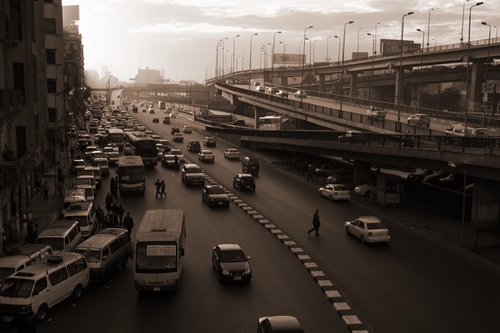
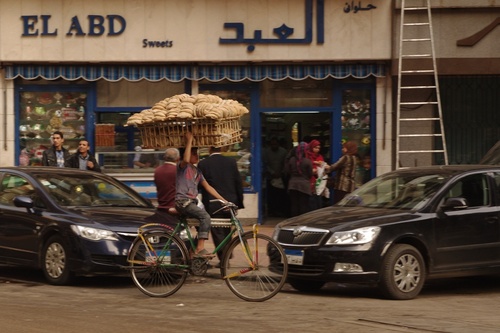
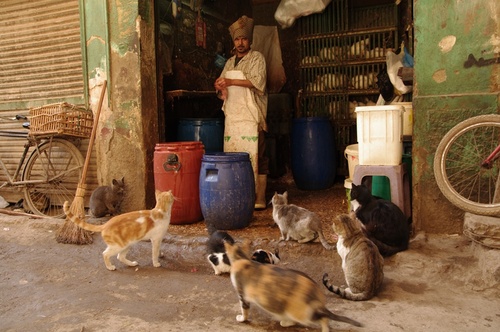
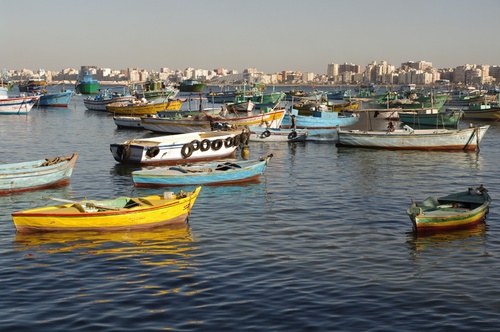
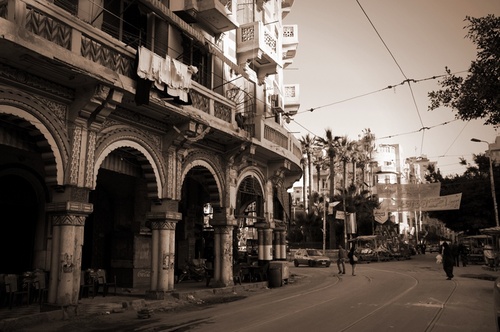
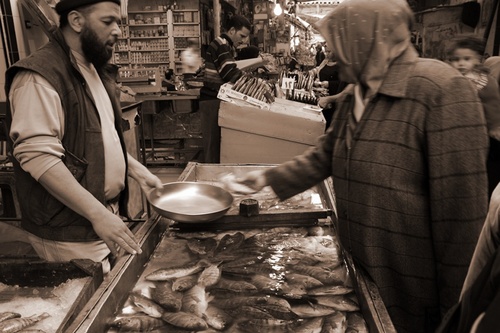
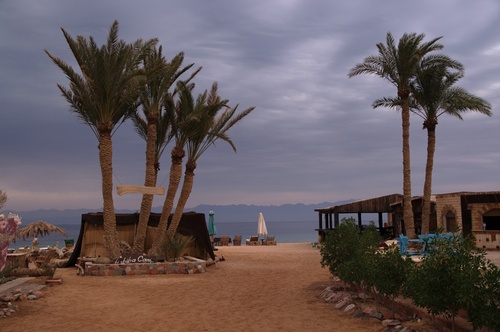
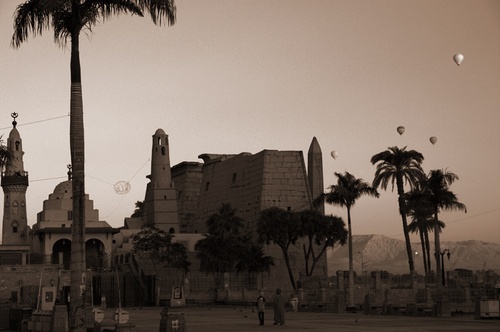

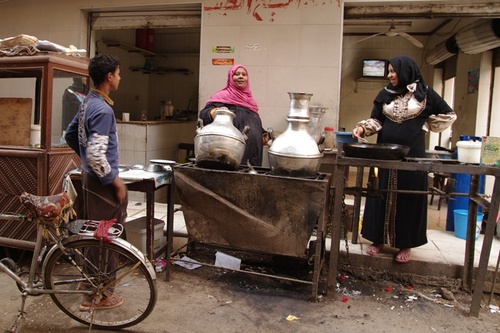
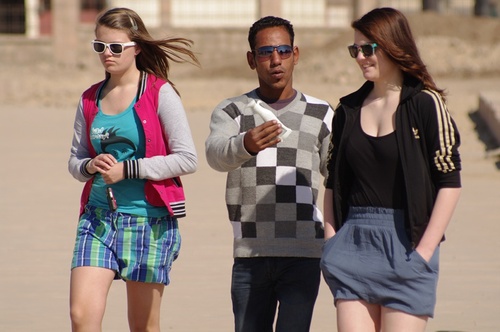
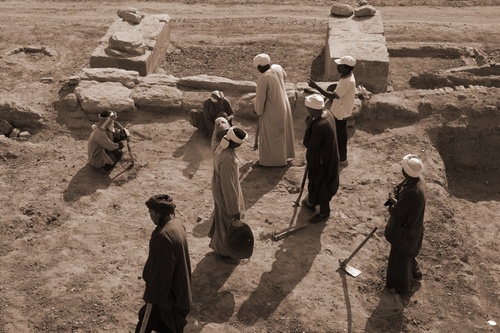
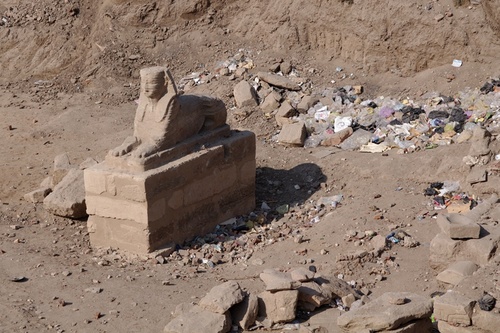
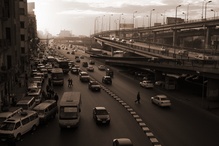

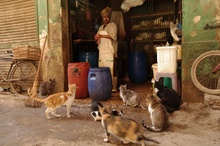
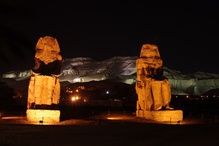

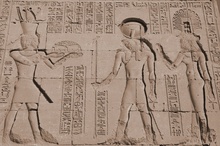
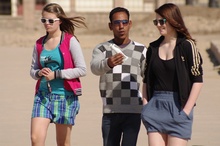
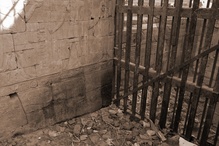
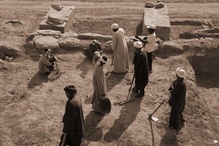
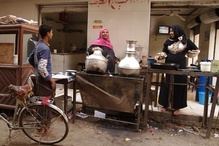
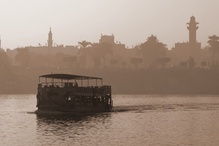
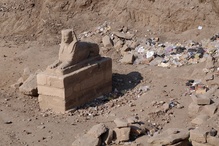
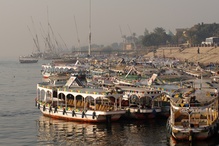
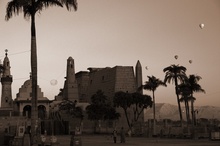
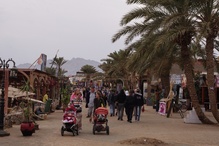
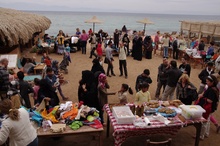
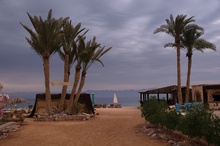
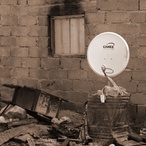
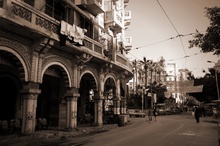
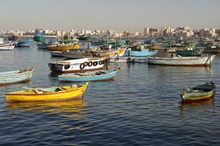
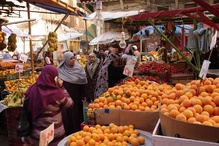
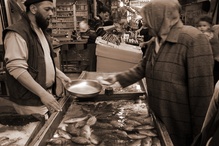
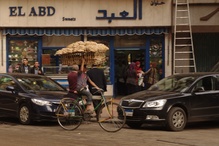
Comments:
Maciek
Z tego opisu widzę, że cała północna Afryka mentalnie wiele się od siebie nie różni. Podobne wrażenia miałem w Maroku, zresztą pamiętam jak się śmialiśmy w trakcie wyprawy, że nie zazdrościmy Ci spędzenia roku w Afryce, dokładnie ze względów o których dzisiaj piszesz.
także życzę wytrwałości i cierpliwości oraz utrzymania zdrowego podejścia jakie prezentujesz.
Na pewno się uda :)
Michał
Stevie
Stevie410,
Paweł
Irek
Michał
"W ataku na północnym wschodzie Etiopii nieznani napastnicy zabili pięciu zagranicznych turystów i porwali cztery osoby. Zabici to dwaj Niemcy, dwaj Węgrzy oraz Austriak - podał dziś rzecznik etiopskiego rządu Bereket Simon.
Do napadu na turystów doszło w nocy z poniedziałku na wtorek w rejonie Afar, w pobliżu granicy z Erytreą."
http://wiadomosci.gazeta.pl/wiadomosci/1,114881,10984949,Atak_na_turystow_w_Etiopii__Zginelo_czterech_Europejczykow.html